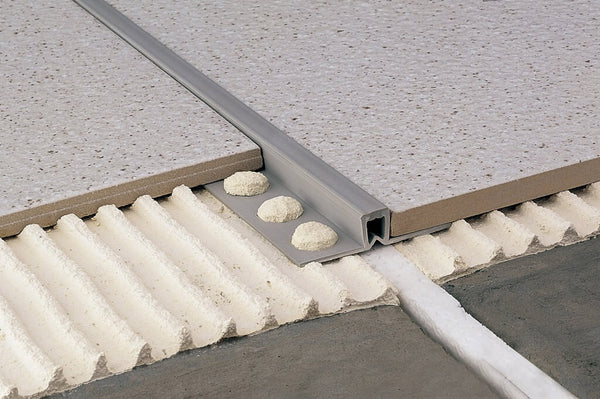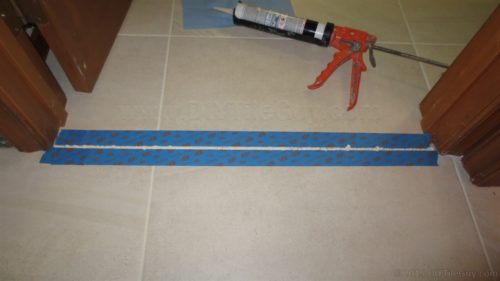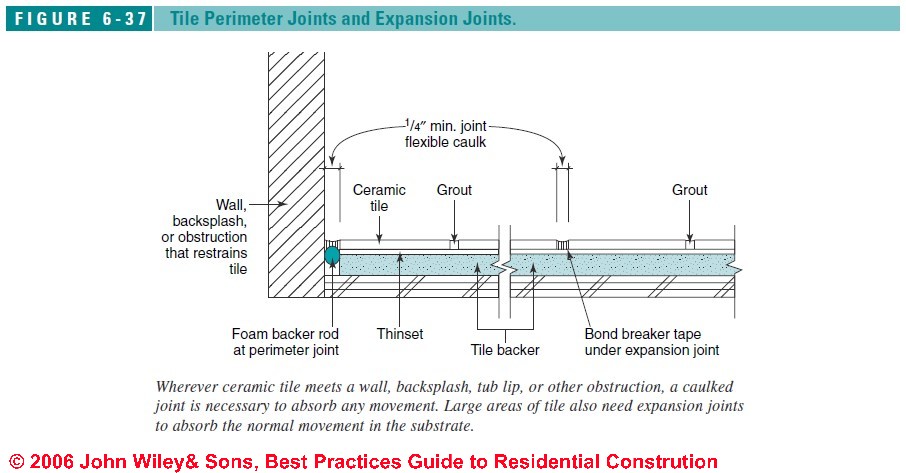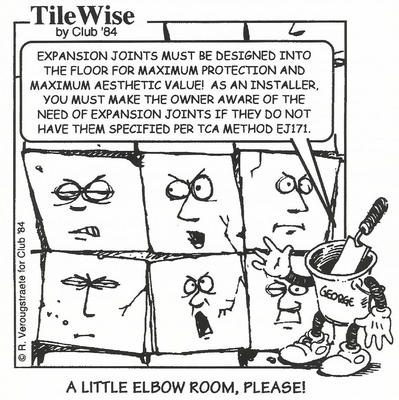However these limiting values rarely occur in properly detailed and well installed floor systems for commonly recommended maximum bay sizes are safely conservative.
Tile expansion joint distance.
Generally a perimeter movement joint is a minimum of 6mm in width.
When you install ceramic tile on the floor you must take care to create an expansion joint between the walls and the tiled floor.
Learn all about expansion joints here.
Ceramic porcelain and stone tile expands and contracts with thermal and moisture changes in the environment.
Perimeter expansion joints are required on all installations to allow free movement at the perimeter of the installation.
The tcna handbook recommends allowing for expansion and contraction in every tile installation.
According to the tile council of north america a body that helps set standards for tile installations when installing outdoor tile there must be an expansion joint every 8 feet to 12 feet in each direction.
The distance between adjacent expansion joints and the dimensions of the individual joints must be such that any movements occurring do not exceed 16 or 20 of the joint width.
At day joints or stress induced saw cuts in subfloors.
Dissimilar building materials can precipitate even faster rates of expansion and can encroach upon the tile and stone installation.
In small rooms a gap at the perimeter of the room often hidden by baseboard or shoe molding is sufficient.
However in order to not make cuts the tile actually overlays the expansion joint by 1 5 tiles are 18 36 thank you for the challenge sweetheart wife i have pics available but not sure how to post them to you.
The distance between control joints shall not exceed 5 5 m 18 ft in either direction or a length to width ratio of 2 5 to 1.
At specified distances across a floor to create individual tile beds general consensus is that movement joints should be utilised at distances between 5m and 8m.
Floors with underfloor heating systems should incorporate movement joints with a limited bay size of a maximum of 25m.
Never fill this gap with grout because tile grout is not flexible.
Concrete also has standards that vary depending on its structure thickness and design mix.
The tile council of north america recommends at least a quarter inch gap between the tile floor and the walls.
Detail ej171 states all underlying movement joints in the substrate need to continue through the tile assembly.
On an area of this size do you experts out there reckon that i ll get away with expansion joints under each door without the need to break up individual rooms by fitting expansion joints up the middle of rooms.








